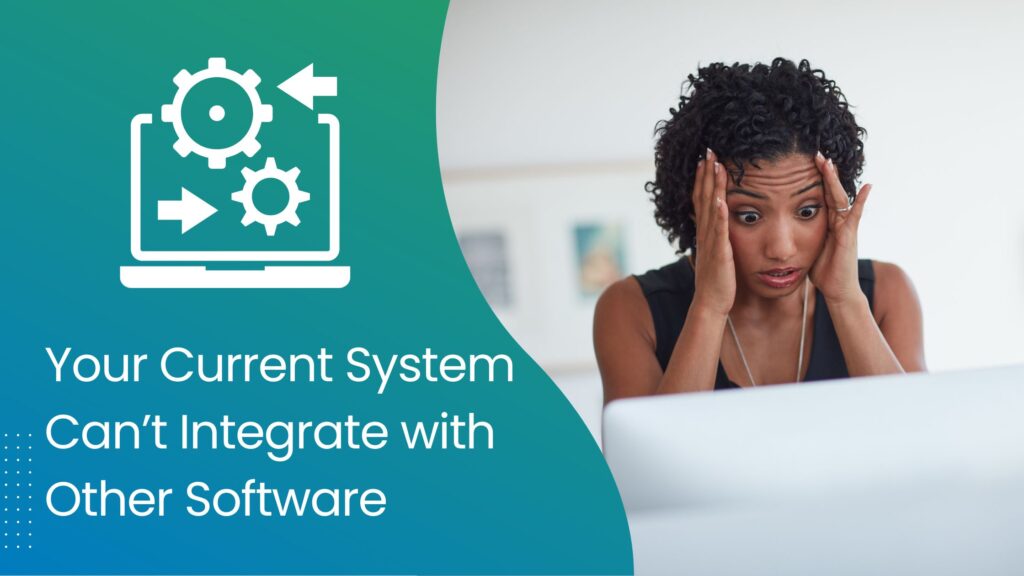1. Manual Processes Are Slowing You Down
One of the clearest signs you’re outgrowing your current financial systems is a reliance on manual processes. If your team is spending hours reconciling accounts, manually entering data, or trying to pull together financial reports from multiple sources, your current system is likely inefficient and prone to human error.
Why this matters:
Manual processes don’t just waste time—they can lead to costly mistakes and missed opportunities for growth. An ERP financial system automates many of these tasks, reducing errors and freeing up your team to focus on more strategic initiatives.
Why move to an ERP in 2025?
Automation is set to dominate business operations in 2025, and ERP financial systems like Acumatica or NetSuite are built to handle it. By moving to an ERP financial system, you can automate everything from invoicing to expense management, significantly improving your operational efficiency and allowing your team to focus on growth.

2. You Lack Real-Time Financial Visibility
As your business grows, it becomes more complex—whether that’s due to expanding operations, managing multiple locations, or overseeing more employees. If your current financial system doesn’t offer real-time visibility into your financial performance, you’re flying blind. Decisions based on outdated or incomplete data can harm your growth prospects.
Why this matters:
Real-time visibility is critical for making informed, strategic decisions. Without a clear view of your financial health at any given moment, you risk missed opportunities, delayed decision-making, and inaccurate forecasting.
Why move to an ERP in 2025?
In 2025, businesses will need to be more data-driven than ever. ERP financial systems provide a single source of truth, offering real-time insights into every aspect of your business. With an ERP financial system, you can access up-to-the-minute financial reports, streamline decision-making, and ensure that your business stays agile in a rapidly changing market.
3. Your Financial Software Isn’t Scalable
What worked for your small or mid-sized business may not work as you continue to grow. Basic accounting software like QuickBooks or Xero is great for managing small business finances, but as you add more clients, expand into new regions, or introduce new products, your software may become a bottleneck. If your current system can’t scale with your business, you’ll find yourself patching together solutions or relying on external tools.
Why this matters:
A financial system that isn’t scalable can stunt your growth, leaving your team to deal with workarounds and inefficiencies. Scaling your business should come with seamless growth in your financial management capabilities—not a flood of new headaches.
Why move to an ERP in 2025?
ERP financial systems are designed to grow with your business. Whether you’re expanding your product lines, entering new markets, or managing complex global operations, an ERP financial system like NetSuite can scale alongside your business. 2025 is expected to be a year of significant digital transformation—making it the ideal time to upgrade to a scalable solution that can grow with you.
4. You’re Struggling to Stay Compliant
As your business grows, so do your compliance obligations. From managing tax codes and regulations across multiple jurisdictions to adhering to industry-specific standards, keeping up with compliance can be a nightmare if your current system isn’t equipped to handle it.
Why this matters:
Non-compliance can lead to hefty fines, legal issues, and reputational damage. Manually tracking compliance or relying on outdated systems increases the risk of mistakes and oversights. Compliance management needs to be streamlined, automated, and integrated into your financial processes.
Why move to an ERP in 2025?
In 2025, regulations and compliance requirements will only become more complex. ERP financial systems come with built-in compliance tools that can help you automatically manage various regulatory requirements across regions and industries. With an ERP financial system, you can ensure your financial processes are audit-ready, reducing the risk of fines and legal complications.
Ready to Upgrade?

5. Your Current System Can’t Integrate with Other Software
As your business grows, so does the need to integrate your financial system with other key business applications like CRM, inventory management, HR, and e-commerce platforms. If your current financial system can’t integrate seamlessly with the other tools you rely on, you’re likely duplicating data and wasting time on manual entry.
Why this matters:
Disconnected systems can lead to data silos, inefficiencies, and communication breakdowns. When your financial data is isolated from the rest of your operations, it’s much harder to get a complete picture of your business performance.
Why move to an ERP in 2025?
An ERP financial system provides a unified platform that integrates all your business functions—financials, sales, inventory, HR, and more—into one cohesive system. By 2025, integration will be a critical driver of business efficiency, and ERP financial systems like Acumatica or NetSuite are designed to eliminate silos, improve collaboration, and offer full visibility across your entire operation.
Why 2025 Is the Year to Invest in an ERP Financial System
2025 is poised to be a year of rapid technological advancement and increased competition. To stay ahead, businesses need to operate with efficiency, accuracy, and agility—and legacy financial systems simply won’t cut it anymore. Here’s why 2025 is the right time to move to an ERP financial system:
- Digital transformation is accelerating: Companies are investing heavily in technology to streamline operations and improve decision-making. An ERP financial system will position your business for success in this new digital era.
- Automation is the future: By 2025, businesses that fail to automate core processes will struggle to remain competitive. ERP financial systems offer powerful automation tools that reduce manual tasks and boost productivity.
- Enhanced data security: With cyber threats on the rise, safeguarding your financial data is more critical than ever. ERP financial systems offer robust security features to protect your business from threats and ensure compliance with industry regulations.
- Future-proofing your business: Investing in an ERP financial system now will ensure that your business is prepared for future growth, equipped with the tools to adapt and thrive in an ever-changing market.
Conclusion: Recognize the Signs and Make the Move
If you’re noticing any of these signs in your business, it’s time to acknowledge that your current financial systems may no longer be sufficient. By investing in an ERP financial system in 2025, you can set your business up for long-term success, with improved efficiency, scalability, and visibility.
Don’t wait until inefficiencies and limitations slow your growth—now is the time to make the move to an ERP financial system that can keep pace with your business in 2025 and beyond. Explore ERP financial systems like Acumatica or NetSuite to see how they can transform your financial management and position your business for future growth.
Future-Proof Your Business
Frequently Asked Questions
1. What is an ERP financial system, and how does it differ from basic accounting software?
An ERP (Enterprise Resource Planning) financial system integrates core business functions such as finance, HR, inventory, and sales into one unified platform. Unlike basic accounting software like QuickBooks, which primarily handles bookkeeping tasks, an ERP financial system offers scalability, real-time data visibility, and automation of financial processes to meet the needs of growing businesses.
2. How can I tell if my current financial system is holding back my business?
Signs that you’ve outgrown your current financial system include reliance on manual processes, lack of real-time financial visibility, difficulties scaling, compliance challenges, and integration issues with other software. If these challenges are becoming more frequent, it may be time to upgrade to an ERP financial system.
3. What are the key benefits of switching to an ERP financial system?
An ERP financial system offers multiple benefits, including improved efficiency through automation, real-time financial reporting, scalability to accommodate business growth, better compliance management, and seamless integration with other business tools.
4. Why is 2025 considered an ideal time to invest in an ERP financial system?
2025 is expected to see increased digital transformation, with businesses focusing heavily on automation, data-driven decision-making, and security. By upgrading to an ERP financial system in 2025, businesses can stay competitive, improve operational efficiency, and future-proof their financial management processes.
5. How does an ERP financial system help with automation?
An ERP financial system automates time-consuming tasks like data entry, invoicing, expense management, and financial reporting. Automation reduces human error, speeds up processes, and allows your team to focus on more strategic initiatives instead of manual work.
6. Will an ERP financial system give me real-time visibility into my financial data?
Yes, an ERP financial system provides real-time access to financial data, enabling you to make informed business decisions quickly. With up-to-the-minute insights into your cash flow, profit margins, and other financial metrics, you’ll be better equipped to navigate growth and market changes.
7. Can an ERP financial system scale with my business as it grows?
Absolutely. One of the biggest advantages of an ERP financial system is its scalability. Whether you’re expanding into new markets, adding product lines, or increasing your workforce, an ERP financial system can handle the increased complexity without requiring significant manual adjustments.
8. How does an ERP financial system help with compliance and regulatory challenges?
ERP financial systems include built-in compliance management tools that help businesses stay up to date with regulatory requirements across different regions and industries. This reduces the risk of non-compliance, fines, and legal issues by automating compliance tracking and integrating it into your financial workflows.
9. How does an ERP financial system improve integration with other business tools?
ERP financial systems are designed to integrate seamlessly with other essential business applications like CRM, HR, e-commerce, and inventory management systems. This eliminates data silos and allows you to manage all business functions from a single platform, improving overall efficiency.
10. What should I consider when choosing an ERP financial system for my business?
When choosing an ERP, consider your business size, industry-specific needs, future growth plans, and your current software’s integration capabilities. It’s also important to select an ERP system that offers robust automation, real-time reporting, and scalability, such as NetSuite or other leading ERP solutions.

